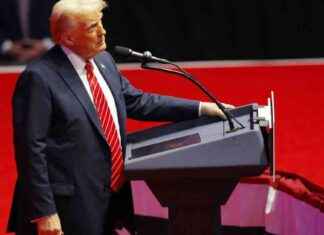Federal Reserve Chairman Jerome Powell made it clear on Thursday that he would not resign from his position even if President-elect Donald Trump were to ask him to do so. Powell firmly stated, “No,” when questioned about the possibility of resigning at Trump’s request. He emphasized that the president does not have the authority to fire or demote him, citing legal constraints.
During a news conference following the Fed’s decision to cut interest rates by a quarter percentage point, Powell addressed concerns about Trump’s past criticisms of him. Despite being appointed by Trump in 2017, Powell faced backlash from the president for not implementing monetary policy changes fast enough. Trump previously expressed his belief that he should have a say in interest rate decisions, although he acknowledged that he should not have the power to directly influence them.
As the nation grappled with the Covid-19 pandemic in March 2020, Trump asserted that he could remove Powell from his position. However, Powell’s term as Fed chair extends until 2026, providing him with security against potential removal. Powell also reassured the public that Trump’s recent election victory would not result in immediate changes to the central bank’s policies.
Regarding the Republican Party’s win in the Senate during the recent election, Powell noted that Trump may have greater support in passing his economic agenda, including tax cuts and tariffs on countries like China. These policy changes could impact the Fed’s objectives of promoting maximum employment and price stability, but Powell emphasized that it is too early to predict the exact outcomes.
Powell highlighted the uncertainty surrounding the next administration’s policies and their implementation timeline. He emphasized that the Fed would need more clarity on the specifics of the economic agenda before adjusting its strategies. Despite the potential economic implications of the new administration’s policies, Powell stated that the Fed is refraining from making assumptions prematurely.
In conclusion, Powell’s firm stance on his position as Fed chair in the face of potential pressure from Trump demonstrates his commitment to upholding the central bank’s independence. The upcoming policy changes under the new administration will undoubtedly influence the Fed’s decision-making process, but Powell’s cautious approach underscores the need for a thorough understanding of the policies before taking any action.








